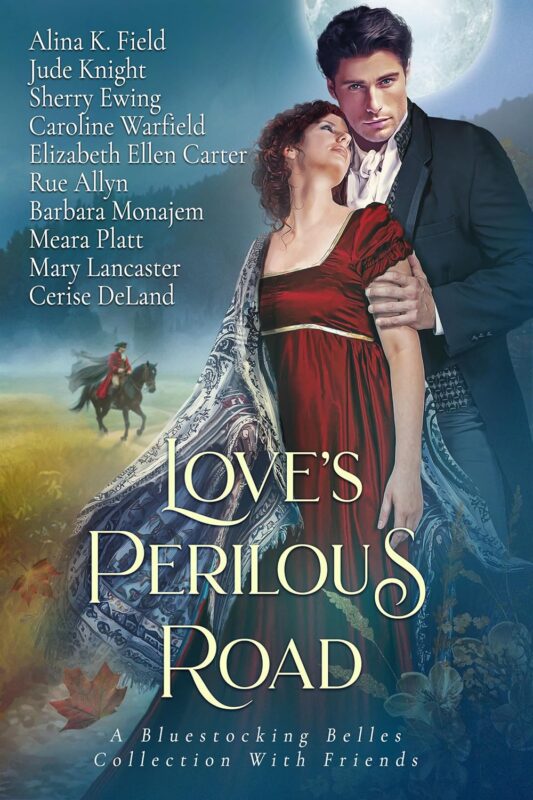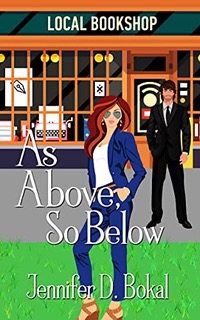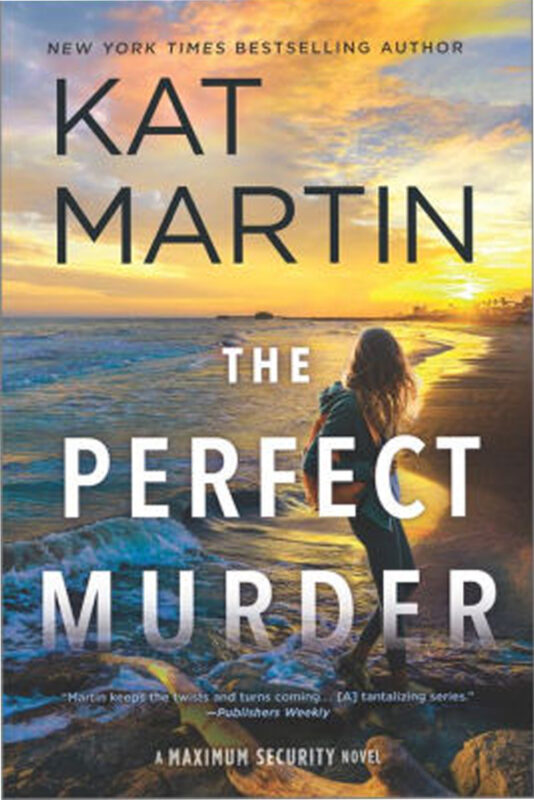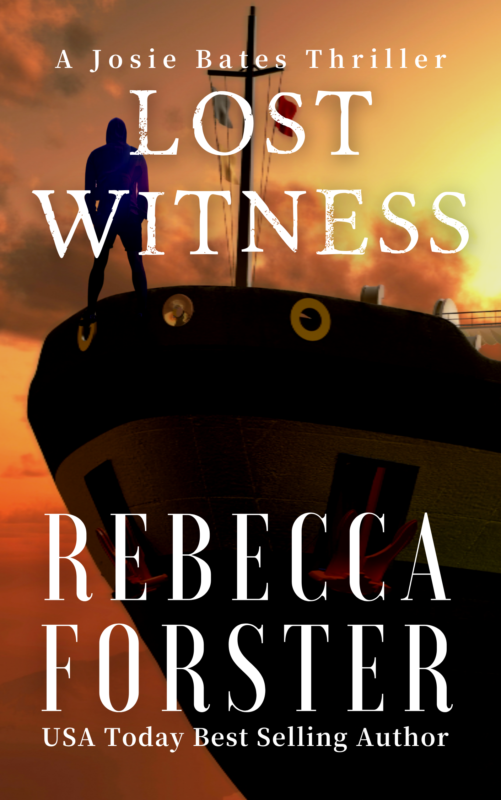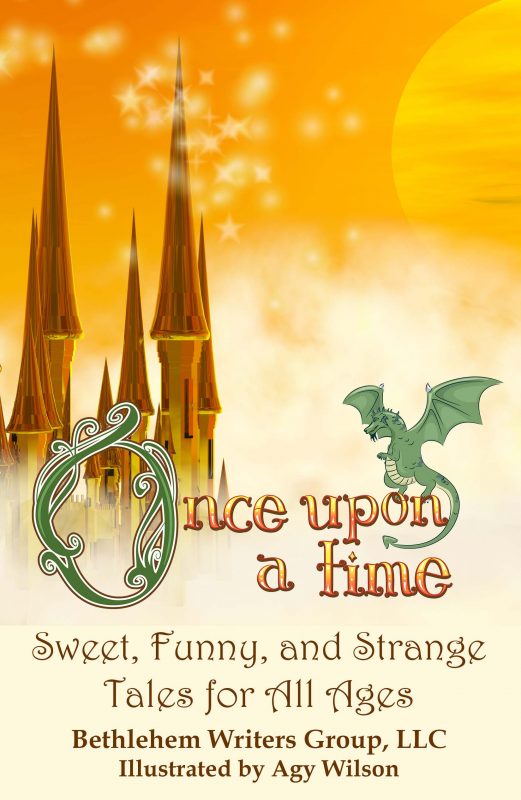THE HORRIBLE, TERRIBLE, AWFUL ‘R’ WORD
August 15, 2019 by Rebecca Forster in category The Write Life by Rebecca Forster, Writing tagged as Research for Writers, words, writing style
I’ve been thinking a lot about redundancy in the last week because I am editing a book that has been a long time in coming. I want the fans that have been waiting for this book to be pleased, as much as I want new readers to be impressed. I was able to recapture the series character voices, the plot was solid, but something was amiss with the writing.
While I was redlining the phrase ‘she turned her head’ for the twenty-fifth time, I realized that much of my description was redundant. I’ve suffered through this before, but this time instead of instead of soldering on I set aside my work and went for the dictionary. The definition of the word redundant was richer and more nuanced than I realized and each definition could be applied to my work.
Redundancy, as I understand it, is characterized as a similarity or repetitiveness. This made sense in terms of the edit I made to delete a recurring phrase. The dictionary further defined the word as describing something exceeding the normal, superfluous, and containing excess. Finally, redundant may be used to describe the profuse or lavish. These definitions were inspiring when applied to the craft of writing. In fact, I realized my WIP suffered greatly from redundancy.
Always chasing a higher word count, I was excessive in my use of conjunctions, verbs and adverbs. My style was buried under unnecessary words and phrases. Each passage became overly formal, lacking grace and fluidity. I had a tendency to say the same things in different ways as if my reader wouldn’t get the point the first time. My love of alliterations, similies, idioms and hyperbole were profuse and lavish to the point of distraction.
The bottom line is this: by attempting to create a memorable work I had, instead, created a book that would be unnecessarily difficult to read. The red pen had already been put to good use, but now I am making the next pass with all the definitions of redundancy top of mind. Already my writing is more precise, the characters are freed from the weight of unnecessary dialogue, and the descriptions of time and place are clearer.
It’s true that you learn something new everyday, and that’s one redundancy I can live with.
3 1 Read moreRomancing the Research by Christopher D. Ochs
February 13, 2019 by Bethlehem Writers Group in category From a Cabin in the Woods by Members of Bethlehem Writers Group tagged as Bethethem Writers Group, Christopher D. Ochs, Greater Lehigh Valley Writers Group, Research for Writers
Christopher D. Ochs is this month featured author. Christopher D. Ochs‘ foray into writing began with his epic fantasy Pindlebryth of Lenland: The Five Artifacts, recommended by US Review of Books. Several of his short stories have been published in the Greater Lehigh Valley Writers Group and Bethlehem Writers Group anthologies and websites. His latest work is a collection of mirthful macabre short stories, If I Can’t Sleep, You Can’t Sleep.

His current literary projects include: short stories in Firebringer Press’ next entry in their Eternity anthology series, an e-book prequel novella for Pindlebryth of Lenland, a YA speculative fiction novel My Friend Jackson, and of course, the second novel of the Pindlebryth saga.
Chris has too many interests outside of writing for his own good. With previous careers in physics, mathematics, electrical engineering and software, and his incessant dabblings as a CGI animator, classical organist, voice talent on radio, DVD and anime conventions, it’s a wonder he can remember to pay the dog and feed his bills. Wait, what?
Romancing the Research
The Joy of Research – “Research?” The very word sends some people diving for the nearest foxhole, or leaves them with an expression akin to that of having swallowed castor oil.
Not me – I’ve always enjoyed learning new topics. It’s even better as an author, because my research is focused on that which I’m already interested. (An unfortunate side-effect is that my mind is filled with decades of clutter and trivia that cries for attention at inopportune moments!)
Method – For better or worse, here’s my approach to the task of research.
I begin my journey with that miasma of questionable reliability – the internet. Its convenience outweighs its pitfalls, so long as one uses it solely to gain general knowledge and build a list of potential authoritative sources. My usual go-to stepping-stones are Wikipedia followed by Google. At the risk of repeating myself, I only use them to suss out general information and pointers to refine the scope of my search.
My second level involves confirming any suspect information against a trustworthy online encyclopedia (e.g. Britannica) or reliable fact-checking sites (e.g. Snopes, Factcheck, Politifact, etc.)
Once I have a clear vision of topics on which to focus, I head to the library. Yes, Dear Reader, in this electronic world, there is still no substitute for paper. That’s just the Facts of Life. Not everything is available on-line, and that often includes the book you need.
Examples – Over the past two years, I’ve published nineteen short stories in various venues. While most were “speculative fiction,” they nonetheless covered a broad range of topics, characters and backgrounds, locales and eras. As an author, I have a responsibility to inject a reasonable level of verisimilitude into my Tales of the Weird – otherwise the story fails miserably. When said story leads me into an area where I have little experience, I hit the books – with relish!
Allow me to relay two recent experiences that demonstrate my own “joy of research.”
While searching for a description of the environment of a tuberculosis sanitorium, I selected Betty MacDonald’s memoir “The Plague and I.” To get the lowdown on girl bullying, a librarian friend recommended “Queen Bees and Wannabes” by Rosalind Wiseman.
In both instances, deadlines and other pressures force me to approach the research in a rush. My original intention was to hastily skim one or two chapters and glean the absolute minimum for a believable story. However, in both instances I ended up devouring the books cover to cover. The narrative of MacDonald’s battle with tuberculosis was so compelling, and the content of Wiseman’s research into the dynamics and psychology of teenage girl bullies was so captivating, that I couldn’t put either of the books down.
I believe my stories were the better for it – if I had hurried through the work, I would have missed much of the minutiae needed to flesh out my own characters, and imbue them with realistic motivations and reactions.
Caution – With all that being said, writers should not use research as an excuse to avoid writing.
During my time in the world of engineering, I often encountered the phrase “the paralysis of analysis.” The same is true in the writing world. An author must resist the temptation to dive down the endless rabbit hole of related topics and “what-if’s.” Otherwise, the writing is never started.
Do your initial block of research, enough to get the draft done. Then polish the draft with refined research, tracking down only those “what-if’s” that the story and characters dictate.
Now get thee to a library!
Books by Christopher D. Ochs
3 0 Read more
Researching Columbia by Kat Martin
February 8, 2019 by A Slice of Orange in category Apples & Oranges by Marianne H. Donley, Guest Posts tagged as #amreading, #RomanticSuspense, Columbia, Kat Martin, Maximum Security Series, Research for Writers, romantic suspense, The Conspriacy
Researching Columbia
Sometimes what you think is going to be a great idea for a novel turns out to be a whole lot of work! That’s what happens when you realize the idea you are now in the middle of isn’t going to work the way you thought it would.
In THE CONSPIRACY, I got the idea for a book that started in Texas, moved to the Caribbean, and ended up in Venezuela. With all the trouble country is having, I thought it would be a great setting for a Romantic Thriller.
Unfortunately, after I was well into the book and started doing the necessary research for that segment of the story, I realized the geography I needed, and the rural setting didn’t exist in Venezuela.
I spent days digging around in South America, looking for a rainforest that could be reasonably reached from the Caribbean island of Aruba. Nothing worked.
Finally, I realized there actually was spot that exactly fit the image in my head. (This happens to writers all the time. No one knows why.) The spot was in Colombia, a place I had no desire to write about, but fit the story exactly.
So I went to work researching a remote area of Columbia accessible from Aruba.
Chase Garrett, the hero of THE CONSPIRACY, with the help of Harper Winston, the woman who hires him to find her missing brother, wind up in extreme danger in the Columbian tropical forest. It’s a very unusual place that required hours of research, but in the end, it was worth it.
I had my work cut out for me, finding which animals, reptiles, and birds lived in the area. Reading about the customs of the indigenous tribes, and the politic. Rebel armies inhabit the forest, and they don’t like intruders.
The research made THE CONSPIRACY one of the most challenging books I’ve written, but hopefully it’s one of my most interesting. I hope you’ll look for THE CONPIRACY, the first of my Maximum Security series, and that you enjoy. Until next time, very best wishes and happy reading,
Kat

New York Times bestselling author Kat Martin is a graduate of the University of California at Santa Barbara where she majored in Anthropology and also studied History. Currently residing in Missoula, Montana with her Western-author husband, L. J. Martin, Kat has written sixty-five Historical and Contemporary Romantic Suspense novels. More than sixteen million copies of her books are in print and she has been published in twenty foreign countries. Her last novel, BEYOND CONTROL, hit both big lists … NEW YORK TIMES BESTSELLER LIST as well as the USA TODAY BEST-SELLING BOOKS LIST. Kat is currently at work on her next Romantic Suspense.
A selection of books by Kat Martin
Partnering in Writing: Tripping to Places & Times by Janet Elizabeth Lynn
January 3, 2019 by Janet Elizabeth Lynn and Will Zeilinger in category Partners in Crime by Janet Elizabeth Lynn & Will Zeilinger tagged as co-writing, Janet Elizabeth Lynn, Research for Writers, traveling, Will Zeilinger, writing partners
My husband, Will Zeilinger and I co-write the Skylar Drake Murder Mysteries. A hardboilded detective series that takes the reader to 1950s Los Angeles and other areas of the west. Our next book, GAME TOWN, will be available Spring 2019. Needless to say, at this time we are in the throes of writing and researching!
Someone said, “You can’t write about old Hollywood unless you experience it.” This is so true! Neither my husband nor I are from LA and didn’t experience gang infested 1950s LA. So we take field trips, such as the Raymond Chandler’s L.A. Tour. We research the clubs and hangouts of the time then visit the nightclubs, hotels, and restaurants (Turns out to be loads of fun).

To begin our journey for this series, (even before we started writing), we took a trip to San Diego and the Sheriff’s Museum. We called ahead and scheduled interviews with several retired policemen, including one that worked the L.A. beat in the late 1950s. This gentleman was a wealth of information on police activity in Hollywood and the surrounding area. Our first novel in the series, SLIVERS OF GLASS, takes place in spring, 1955 in Santa Rosa.

Research for STRANGE MARKINGS was mostly gathered on our trip to Molokai, Hawaii. Natives we interviewed told us about the many legends and what it was like living in the area in summer, 1955. As each person talked about their experiences, plots and subplots emerged for us.

We found people living in the areas at the time each book took place and interviewed them. Since DESERT ICE takes place in Las Vegas, Fall, 1955. We interviewed a dancer who worked on the, then new, strip. Will also had a college buddy who lived in Boyle Heights in the 50s, so we interviewed him and his sister for the same book where the first murder takes place.

SLICK DEAL takes place in Winter of 1955, is base on interviews with local people in Signal Hill, and Avalon, on Catalina Island all in southern California. After lengthy interviews my husband and I commented how the spoken word conjures up images and ideas so easily.
GAME TOWN, our fifth book in the series due for release in April 2019, takes place in spring, 1956. We decided to keep it in Hollywood for the first time. We recently took an afternoon and drove around old Hollywood looking for body dumps that would have been in existence in 1956. We stumbled upon a lovely apartment building, El Royale, circa 1929. We weren’t allowed in the building without permission from a resident, so we drove around and looked it up on the internet when we got home. What an amazing place for several scenes!
Whether writing about faraway places, or in a different era, visiting locations or places that imitate the area helps us develop plots. Interviews with those familiar with the time or location add “flavor” to our story. So if you are writing about a famous lodge in Switzerland, take a trip to a Ski Lodge close to you when it snows.
The results of our research? SLIVERS OF GLASS, STRANGE MARKINGS, DESERT ICE, SLICK DEAL and coming soon, GAME TOWN . . . and yes, we’re still married.
Website: www.janetlynnauthor.com
Blog: www.themarriedauthors.blogspot.com
Research: Does Inaccuracy in a Novel Bother You? By Connie Vines
April 13, 2016 by A Slice of Orange in category Archives tagged as Connie Vines, Gems in the Attic, GothRom RWA, Native American Romance, OCC Blog, OCC RWA, Research for WritersI blog weekly on two sites (in addition to my own) and monthly on four website, I thought I’d post a topic from my Round Robin Series.
Topic: All story genres take some research for establishing details in the setting. What type of research have you had to do? Does it bother you when you read something happening in a story that is inaccurate historically, socially, scientifically, etc?
Does it bother me?
Yes.
However, in my case, there are varying degrees of irritation. If it is an easily found fact, or a fact that any functioning adult should be aware of then, yes—I am very irritated and will probably not finish the novel. On the other hand if current verbiage is used or the description of an item of clothing is more modern, that could be the writer’s choice. The writer may feel that her ‘readers’ wish to have the ‘flavor’ of a historical story without the genealogy charts or gritty reality of the era. Then I am okay. But to pass the facts off as accurate/ or marketed to make the reader believe this is not a fictionalized story—as in “The Other Boleyn Sister†or Disney’s “Pocahontas†animated movie (with what I like to call the Vulcan-mind-meld when the Hero and Heroine suddenly speak and understand each other), I do become angry. Apparently, I clamp my teeth, and my husband will swear that I growl when these movies become a topic of conversation.
We all make mistakes, I remind myself. Alternatively, the copy-editor adds/ deletes a needed fact. Moreover, sometime we simply ‘thought’ we removed it from the final draft. Still sloppy research makes for sloppy writing. If you do not like research, build your own world/town/or, do not give the reader a date or place to hang her hat on. You and add a statement: liberties were taken; the mistakes are my own, etc.
Researching
Any professional writer knows there is a lot more to the job than simply writing. There is also revising, editing, promoting, and much more. Before I even consider typing: Chapter One. Whether I am writing, historical, or fantasy, I conducted days—if not months or even years, gather my research material and scheduling interviews.
Research is vital to every writer. Contemporary novels required daily research to keep up-to-date on the latest tech item, hairstyle or whatever relates to your storyline.
Every encounter with a new person or visiting a new place is an opportunity for better, more descriptive writing. Writers never truly take a vacation, or turn off the research part of her/his brain.
So how do I organized my research material? (Tossing everything into a large bin is oh-so-not-the-way to be organized.)
#1: Keep a File Folder for Ideas
I have files where I stash clippings of articles on specific topics I feel will come up again, or will one day make great short stories/articles. I have plain colored folders for “shared†topics (I write multiple genres), cute folders (for YA/Teen topics), action folders for supernatural stories, etc.
These clippings are often story generators or prompts to open a chapter/create a pivot point. How many times have you heard something on the radio or watched something on television and thought, “Wouldn’t that be so great in my next novel�
Story prompts can be anything that you find interesting, anything that relates to your genre or area of writing interest. Because my books are character driven, I tend to be drawn to articles that talk about the human condition (i.e., why we do the things we do) or specific topics that I feel relate to my particular ‘character’.
#2: Story Premise Research First
When you start a new project, you must make some decisions. What is the theme of your book? (We might also think of this step as “what is the premise of your book?â€) The answer to this question will guide your starting research.
My third book, Whisper upon the Water, focused a lot on the living conditions and societal attitudes about Native American children. I already knew that Native American children were forced to attend government run boarding schools after the Indian Wars, but I did not know about the process, and how it affected the children or how they adapted. Therefore, I began with interviews, tours of the schools still in operation and trips to historical archives and reservations.
Before I wrote a single word, I looked into this, and the answers I found are what formulated my plot points. I needed this foundation of research to create a convincing plot, otherwise I would not tell the story correctly. I wanted the truth, I wanted historical accuracy and I wanted my readers to have an emotional connection to my characters.
Poor research in the beginning often results in a manuscripts dying at the halfway point. Think of this step as the foundation of your novel.
#3: First-Hand Accounts
As a rule, I set my stories in placed I have lived or visited. However, a writer does not have to go to a city/country to get a feeling for it.
Online Resources
Travel sites, local blogs, and YouTube all have a place in a writer’s arsenal. In particular:
• Travel Sites often have detailed maps and downloadable audio walking tours that can give you context for notable buildings and directional substance for urban areas to include in your book.
• YouTube is a major resource, often underutilized by writers. Those seemingly normal videos are great for providing local terminology, dialect, visual perspective and even minor details like the amount of traffic at a particular park or on a particular street.
#4: Details
• Using Google Maps and Streetview, for my upcoming release anthology at BWL: Gumbo Ya Ya—for women who like romance Cajun & men Hot & Spicy! I was able to get a street view of that area and I could ‘walk’ the streets as they appear in New Orleans. The Streetview feature setting on Google Maps plops you down right at street level and gives you a 360-degree view of everything including traffic, crowds, and architecture. While I do have my personal photos and memories of the city, it is always good to make certain the details are ‘just right’.
#5: Remember to Write
You can always do a fact check on the smaller items as part of the final revision process.
When I am dictating or typing my story, unless an earth-shattering event is in the works, I do not stop the process. I will type:** research time line of Spanish Flu or ** insert the popular song year, and keep writing. When I go back over the material, I will have time to add the particulars.
Research is fun. Unlike may authors, research in my favorite part of writing. Like a method actor, I immerse myself in the process. Hobbies, Music, Books, and Food (well, not food when I wrote my Zombie novella, “Here Today, Zombie Tomorrowâ€. right now, however, it is shrimp Creole, pecan pie and coffee with chicory). Research need not be cumbersome. If you are interested in your subject matter, then it is not work. It is just another part of writing a book.
I believe it is writing a book that is rich in research helps to separate the writers from the multi-published authors.
Readers, how do you feel about this topic? How important is historical accuracy to you?
Happy Reading,
Connie Vines
Affiliate Links
A Slice of Orange is an affiliate with some of the booksellers listed on this website, including Barnes & Nobel, Books A Million, iBooks, Kobo, and Smashwords. This means A Slice of Orange may earn a small advertising fee from sales made through the links used on this website. There are reminders of these affiliate links on the pages for individual books.
Search A Slice of Orange
Find a Column
Archives
Featured Books
LOVE’S PERILOUS ROAD
Travel, houseparties, smugglers, spies--and a mysterious highwayman. Who is the infamous Captain Moonlight? And how many lives will he change—for good or for ill?
More info →
THE PERFECT MURDER
Reese and his brothers must track down the truth before the body count gets any higher.
More info →LOST WITNESS: A Josie Bates Thriller
The sands of time are running out . . .
More info →ONCE UPON A TIME: Sweet, Funny, and Strange Tales for All Ages
Step through our castle doors into a world of imagination!
More info →Newsletter
Contributing Authors
Search A Slice of Orange
Find a Column
Archives
Authors in the Bookstore
- A. E. Decker
- A. J. Scudiere
- A.J. Sidransky
- A.M. Roark
- Abby Collette
- Alanna Lucus
- Albert Marrin
- Alice Duncan
- Alina K. Field
- Alison Green Myers
- Andi Lawrencovna
- Andrew C Raiford
- Angela Pryce
- Aviva Vaughn
- Barbara Ankrum
- Bethlehem Writers Group, LLC
- Carol L. Wright
- Celeste Barclay
- Christina Alexandra
- Christopher D. Ochs
- Claire Davon
- Claire Naden
- Courtnee Turner Hoyle
- Courtney Annicchiarico
- D. Lieber
- Daniel V. Meier Jr.
- Debra Dixon
- Debra H. Goldstein
- Debra Holland
- Dee Ann Palmer
- Denise M. Colby
- Diane Benefiel
- Diane Sismour
- Dianna Sinovic
- DT Krippene
- E.B. Dawson
- Emilie Dallaire
- Emily Brightwell
- Emily PW Murphy
- Fae Rowen
- Faith L. Justice
- Frances Amati
- Geralyn Corcillo
- Glynnis Campbell
- Greg Jolley
- H. O. Charles
- Jaclyn Roché
- Jacqueline Diamond
- Janet Lynn and Will Zeilinger
- Jaya Mehta
- Jeannine Atkins
- Jeff Baird
- Jenna Barwin
- Jenne Kern
- Jennifer D. Bokal
- Jennifer Lyon
- Jerome W. McFadden
- Jill Piscitello
- Jina Bacarr
- Jo A. Hiestand
- Jodi Bogert
- Jolina Petersheim
- Jonathan Maberry
- Joy Allyson
- Judy Duarte
- Justin Murphy
- Justine Davis
- Kat Martin
- Kidd Wadsworth
- Kitty Bucholtz
- Kristy Tate
- Larry Deibert
- Larry Hamilton
- Laura Drake
- Laurie Stevens
- Leslie Knowles
- Li-Ying Lundquist
- Linda Carroll-Bradd
- Linda Lappin
- Linda McLaughlin
- Linda O. Johnston
- Lisa Preston
- Lolo Paige
- Loran Holt
- Lynette M. Burrows
- Lyssa Kay Adams
- Madeline Ash
- Margarita Engle
- Marguerite Quantaine
- Marianne H. Donley
- Mary Castillo
- Maureen Klovers
- Megan Haskell
- Melanie Waterbury
- Melisa Rivero
- Melissa Chambers
- Melodie Winawer
- Meriam Wilhelm
- Mikel J. Wilson
- Mindy Neff
- Monica McCabe
- Nancy Brashear
- Neetu Malik
- Nikki Prince
- Once Upon Anthologies
- Paula Gail Benson
- Penny Reid
- Peter J Barbour
- Priscilla Oliveras
- R. H. Kohno
- Rachel Hailey
- Ralph Hieb
- Ramcy Diek
- Ransom Stephens
- Rebecca Forster
- Renae Wrich
- Roxy Matthews
- Ryder Hunte Clancy
- Sally Paradysz
- Sheila Colón-Bagley
- Simone de Muñoz
- Sophie Barnes
- Susan Kaye Quinn
- Susan Lynn Meyer
- Susan Squires
- T. D. Fox
- Tara C. Allred
- Tara Lain
- Tari Lynn Jewett
- Terri Osburn
- Tracy Reed
- Vera Jane Cook
- Vicki Crum
- Writing Something Romantic
Affiliate Links
A Slice of Orange is an affiliate with some of the booksellers listed on this website, including Barnes & Nobel, Books A Million, iBooks, Kobo, and Smashwords. This means A Slice of Orange may earn a small advertising fee from sales made through the links used on this website. There are reminders of these affiliate links on the pages for individual books.









































